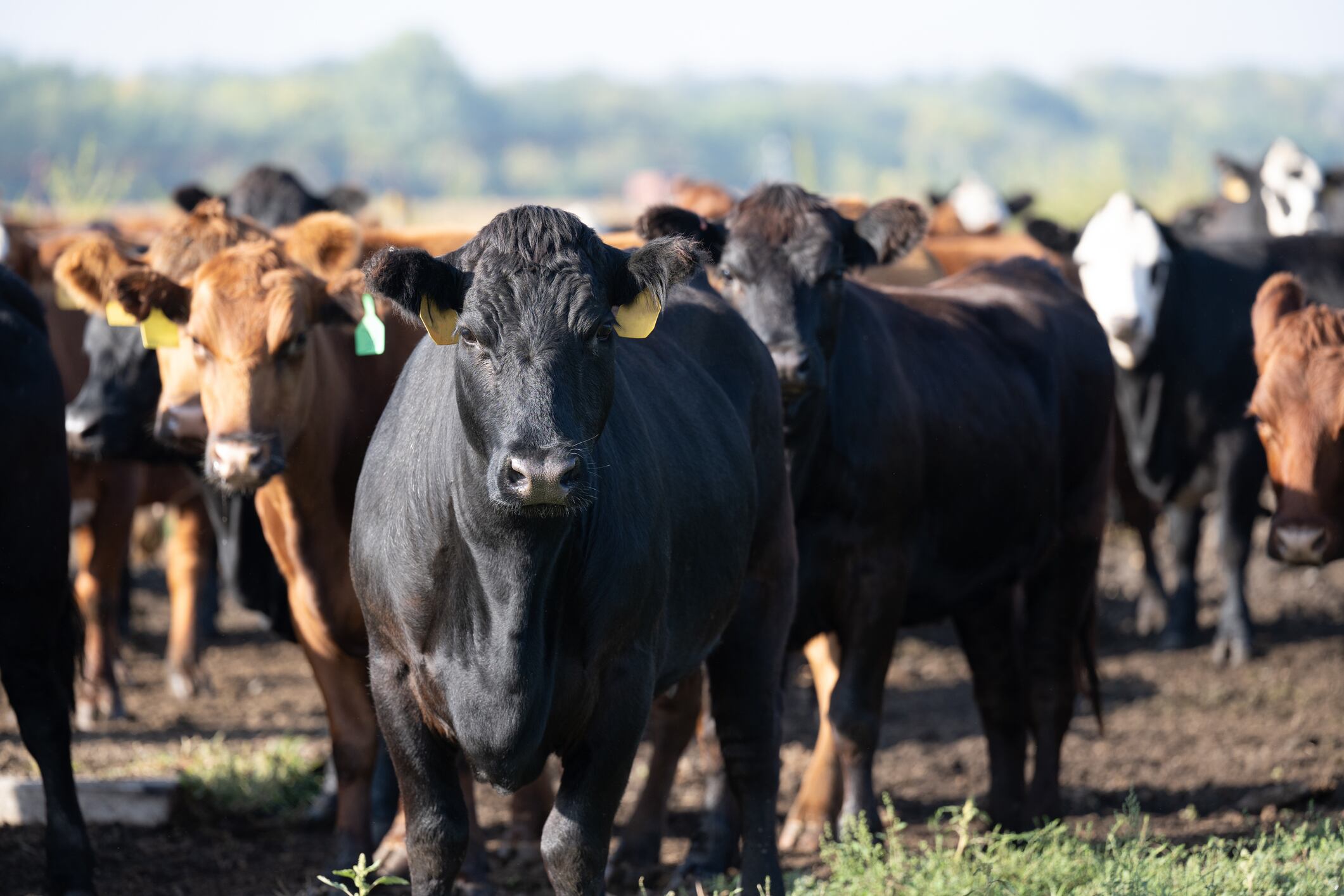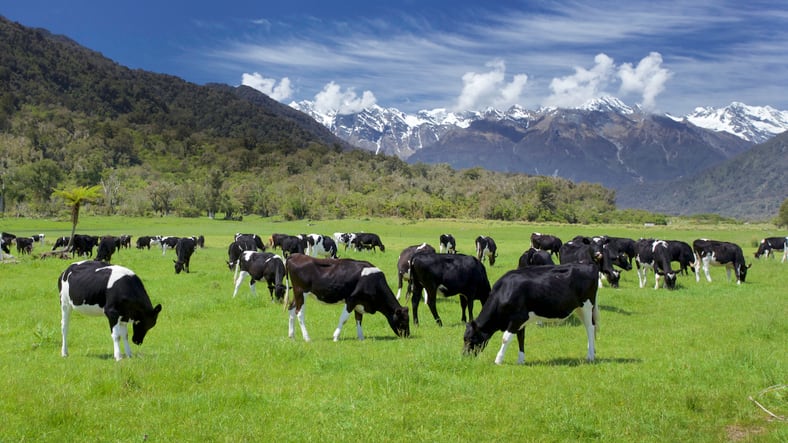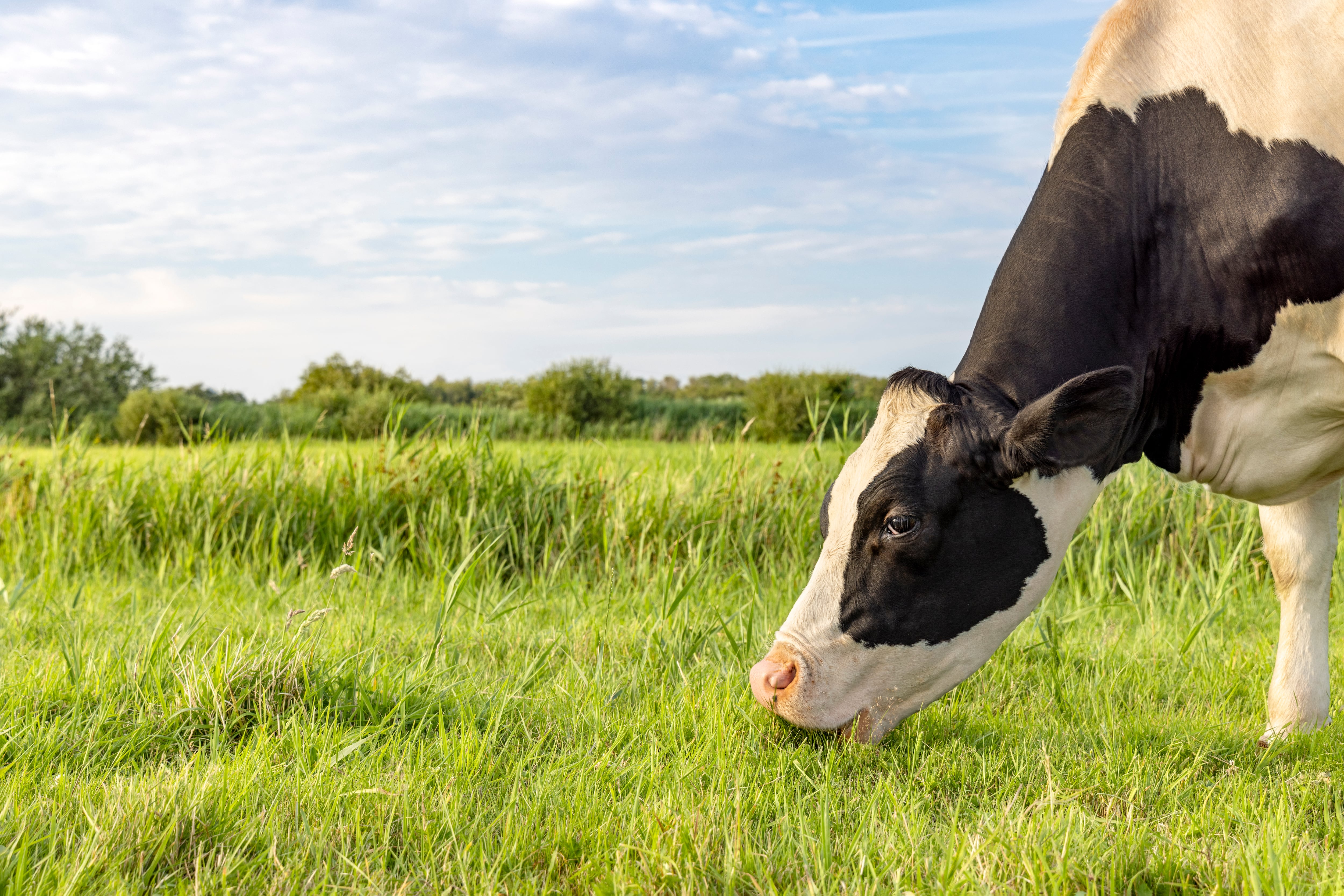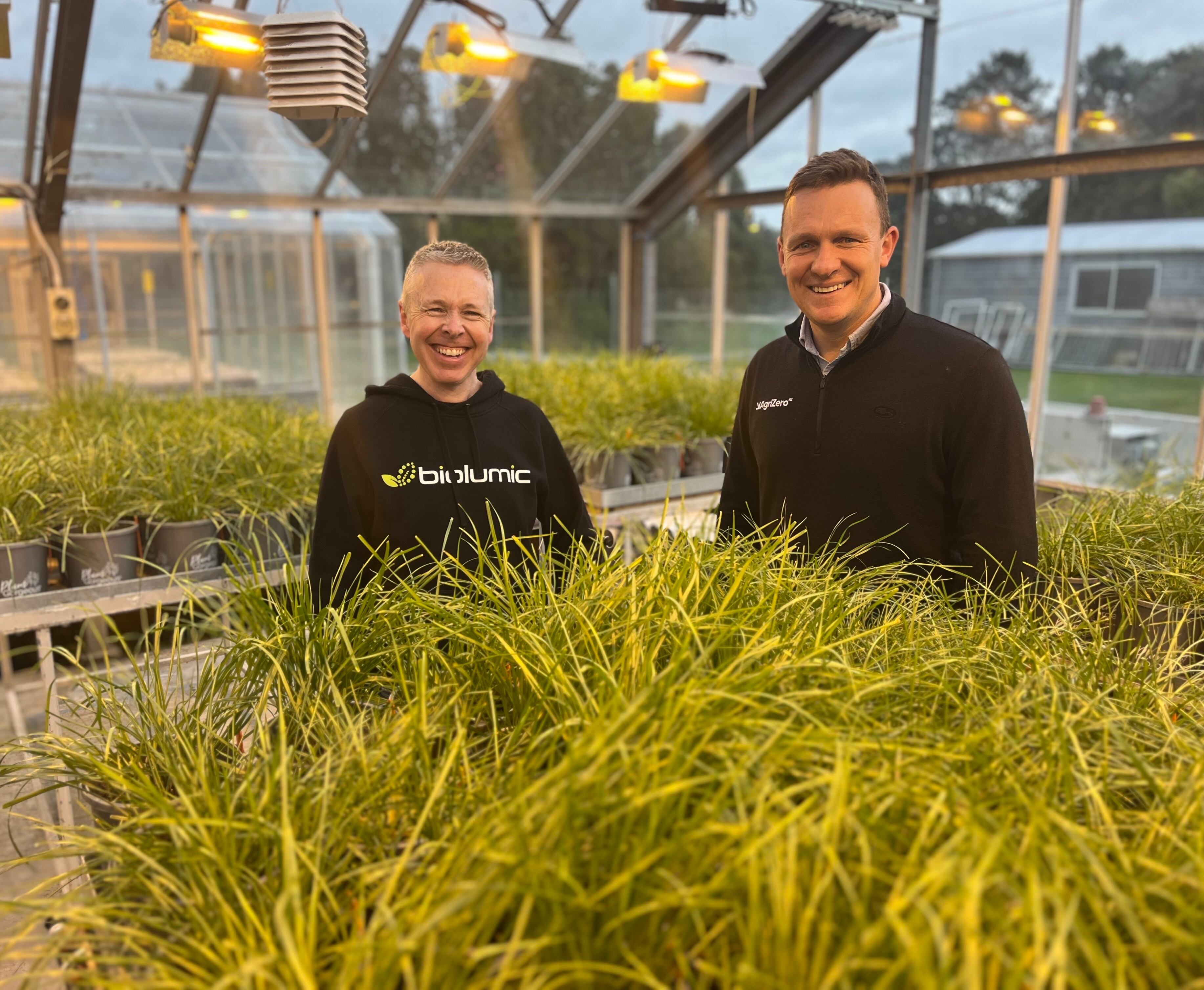A recent study published in Translational Animal Science found that a synthetic bromoform feed additive reduced methane emissions by 95.2% in cattle.
The trial, conducted at UC Davis, evaluated the potential of Rumin8’s oil-based formulation as a mitigation strategy for enteric methane (CH4), a major greenhouse gas emitted by livestock.
The study marks the first peer-reviewed publication on an animal trial using products developed by Rumin8, an Australian company working on methane-reducing feed additives.
The paper also contributes to the growing body of research on synthetic methane inhibitors and their potential role in reducing the environmental impact of livestock production.

Rumin8 is developing solid feed and water-soluble formulations containing Tribromomethane (TBM), a compound that has previously demonstrated methane inhibition in seaweed-based studies.
Study design and findings
The 12-week trial involved 24 Angus beef steers, all fed a total mixed ration (TMR). The cattle were divided into three groups:
- A control group (no additive),
- A group receiving Rumin8 oil-based formulation,
- A group receiving Rumin8 powder-based formulation.
The results showed that cattle receiving Rumin8 oil IVP (8 mL/kg intake) had a 95.0% reduction in CH4 production, a 95.0% reduction in CH4 yield, and a 96.1% reduction in CH4 intensity, with no observed negative effects on growth performance or rumen function.
The powdered formulation did not significantly impact methane emissions, which researchers attributed to a lower concentration of the active ingredient. The study authors noted that further research is needed to optimize the formulation.
The findings suggest that a synthetic CHBr3-based feed additive could provide methane reduction levels comparable to those observed in seaweed-based studies, without the challenges of large-scale seaweed cultivation, confirmed the authors.
‘The UC Davis trial and publication marks an important milestone for Rumin8, as a globally renowned research institution has now validated the methane reductions seen in Rumin8 studies conducted in Australia, New Zealand and Brazil.’
David Messina, Rumin8 CEO
Regulatory progress and next steps
Rumin8 has been conducting trials in Australia, New Zealand, Brazil, and the US to refine its methane-reducing formulations. The company has also secured regulatory approvals in key markets:
- Brazil (October 2024): Feed ingredient approval from the Ministry of Agriculture, Livestock, and Food Supply, a significant step in a country with nearly 235 million cattle.
- New Zealand (July 2024): Provisional regulatory authorization.
The company outlined how further efficacy and safety studies in commercial cattle operations are planned to meet regulatory requirements for full approval in Brazil and other regions.
European trials are likely next, said a spokesperson, with the company aiming to develop multiple delivery systems suited to different livestock production models, including oil, powder, water-based additives, and a bolus formulation.





